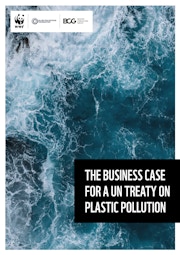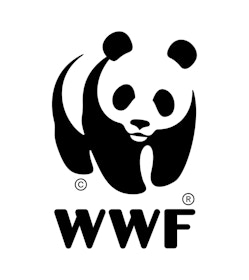
Plastic is a material with exceptional properties. Along with being versatile, inexpensive and durable, it brings significant benefits to society—from enabling the effective transport of goods to reducing food waste to protecting human health during critical crises, such as the Covid-19 pandemic.
However, its durability also presents a challenge, particularly when it leaks from the value chain and becomes pollution. Plastics can persist in the environment for hundreds of years, causing harm to nature and people. Currently, more than 11 million metric tons of plastic are flowing into the ocean each year and there is no sign that leakage rates are slowing.
Indeed, the global volume of plastic entering the ocean is forecast to triple over the next 20 years. Unless all sectors are able to work together to eliminate unnecessary and problematic plastic, shift to reuse models, radically increase recycling levels and stop the leakages in the current system, plastic will continue to pollute ecosystems and result in significant ecological, social, and economic harm.
Business’ social license to operate is under pressure
The rapid accumulation of plastic pollution in ecosystems also impacts businesses. Public awareness of the issue is growing, and recent surveys identify it as one of the most important environmental threats. Many companies are facing increased reputational risks as more and more consumers demand effective responses from businesses across the plastic value chain.
Moreover, employees are increasingly looking to work for firms with a positive purpose, investors are expecting firms to manage their plastic footprint responsibly, and regulators are promoting policies and legislation aimed at tackling the problem. It is no longer a question of whether regulation is coming, but what regulation is coming.
Multiple efforts are already underway
Both the number of voluntary multi-stakeholder initiatives and the number of national regulations to address plastic pollution have more than doubled in the last five years. The world’s largest fast-moving consumer goods (FMCG) companies rank tackling plastic packaging waste as a top sustainability issue, and media coverage of their efforts has increased eightfold since 2016.
Yet, the plastic pollution tude keeps rising
The Covid-19 pandemic has increased uncertainty for consumers, businesses and policymakers, but the core issues were already evident before the pandemic. Four systemic barriers hinder progress:
1. Voluntary initiatives have laid the foundation in many areas but lack sufficient support and scale to drive system change
2. The current plastic regulatory landscape is heterogeneous and many regulations typically do not cover the full plastic value chain and often fail to target the fundamental problem drivers
3. The lack of basic harmonised data at global, national and business levels limits the ability to monitor progress and evaluate the effectiveness of current measures
4. Significant structural capability gaps exist in critical markets that lack basic infrastructure and the systems to keep plastic in circulation after initial use
Despite the rapidly growing scale of the environmental challenge, and the transboundary nature of its impact on the ocean, plastic pollution lacks a dedicated international legal framework, which is how many other comparable international environmental issues are governed.
A global problem needs a global response
Given the urgency and scale of the challenge, and the need to amplify current efforts, a new and more ambitious approach is required. A UN treaty on plastic pollution, whereby governments commit to a coordinated set of actions and policies, could catalyse a comprehensive global effort to address the problem at scale, and help put the world on a path toward a circular economy for plastics. It would establish the international framework for both governments and companies to move decisively in the right direction. The objective of such a treaty should be to eliminate plastic leakage into the ocean by a specific date. Critical elements of the treaty should include:
1. Harmonised regulatory standards and common definitions across markets
2. Clear national targets and action plans that aggregate to deliver on the treaty’s overarching objective
3. Common reporting metrics and methodologies across the plastic value chain
4. Coordinated investment approaches to support infrastructure development in key markets and innovation
The business case for a UN treaty is clear
A UN treaty on plastic pollution would benefit businesses as well as the environment. It can create a level playing field across the plastic value chain, accelerating industry transformation and existing voluntary initiatives. Specifically, a UN treaty would:
1. Help reduce operational complexity and compliance risk across markets
2. Enable businesses to plan investments while managing the costs of compliance scanning
3. Simplify reporting across the plastic value chain, bringing greater transparency to more effectively measure progress and manage reputational risk
4. Coordinate actions across the plastic value chain, improving the prospects for meeting ambitious corporate commitments
Our call to action
Leading global companies are calling for action in conjunction with this report. We invite more businesses to join these companies in publicly endorsing this message, calling on all member states of the United Nations to commence negotiations on a global treaty on plastic pollution. The need for action is urgent, as is the need for governments and businesses across the plastic value chain to work together at an unprecedented scale. There is no time to waste.
Find out more at www.plasticpollutiontreaty.org
Publish your content with EB Publishing
It's about who you reach. Get your news, events, jobs and thought leadership seen by those who matter to you.










